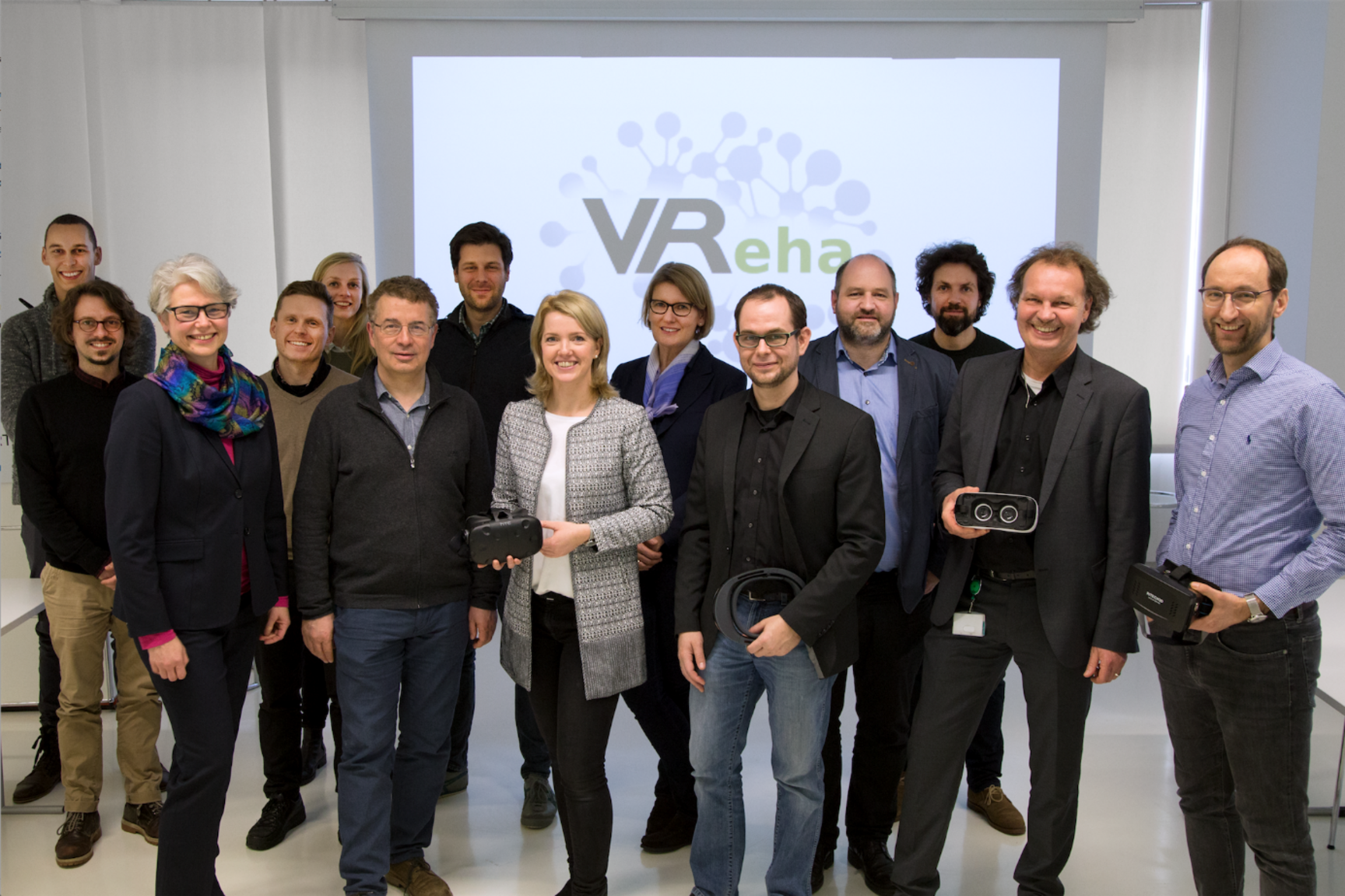
After neurological diseases such as stroke or dementia, impairment of the mental performance is common. The aim of the project VReha is a detailed comprehension of these aftereffects with the help of new techniques from the field of Virtual Reality, which will help to treat the patients more effectively. Researchers form science and medical practice are developing methods of Virtual Reality in a way, where the patients concerned will be able to solve exercises in computer-animated 3D worlds.
Neuroscientist Michael Gaebler of the Max Planck Institute for Cognitive and Neurosciences (MPI CBS) in Leipzig explains: “We want to use virtual worlds to let people perform certain actions and observe how they move, for example, through unknown spaces, in order to capture the noticeable cognitive anomalies.” He is one of the visionaries behind the VReha project, which aim, on behalf of the Federal Ministry of Education and Research, is to further develop Virtual Reality technologies over the course of the next two years. The objective here is to develop more accurate diagnostics in cognitive limitations that can then be improved through customized training. More than ten experts from science, medical practice and industry are working on the project. Scientists from the MPI CBS, as well as physicians and neuropsychologists with practical experience at the Cognitive Neurology Day-Care Clinic of the University of Leipzig and the Neurology Clinic of the Charité - University Medical Department Berlin are developing various tasks that will later be used to identify the characteristics of various diseases. The aim is to develop disease-specific profiles that will support the diagnosis and rehabilitation of patients in the future.
Researchers from the Fraunhofer Heinrich Hertz Institute HHI in Berlin and from the medical technology company HASOMED GmbH in Magdeburg will focus on the project-specific hardware by developing the VR system required for the project. Immersive technologies such as Virtual Reality (VR) or Augmented Reality (AR) are currently experiencing rapid development. In the near future, almost every household could be equipped with VR and AR systems. This offers new and innovative possibilities for diagnostic and therapeutic applications. For a widespread introduction of these new technologies in the field of diagnostics and rehabilitation, it is important to develop new user-friendly and convincing applications. Particularly in the interaction in virtual scenes as well as in visualization, decisive new and further development is necessary. Fraunhofer HHI will provide new basic technologies for VR input and visualization within the framework of VReha. These technologies will be developed in cooperation with the industrial partner HASOMED GmbH into a prototype VR application. This VR tool box will then form the foundation for the new digital diagnostic and rehabilitation procedures of the clinical partners.
In recent years affordable Virtual Reality glasses have been developed. Doctors, psychologists and neuroscientists see great potential in the use of this technology to detect and treat neurological and mental diseases. VR technologies are already successfully applied in medical and psychological practice in order to relieve stress, pain or even trauma. “We want to build on these successes with VReha and to furthermore extend the functions to identifying and treating cognitive deficits,” adds Prof. Dr. Carsten Finke from project partner Charité. The scientists of the project VReha are confident that they will be able to lay the foundation for this over the course of the next two years.
The project’s launch event was already a valuable contribution to a good cooperation and communication among all project partners. Both concrete and future steps have been coordinated. The team of the project is looking forward to an intensive cooperation in this exciting field of research to improve the care of patients with cognitive disorders.
